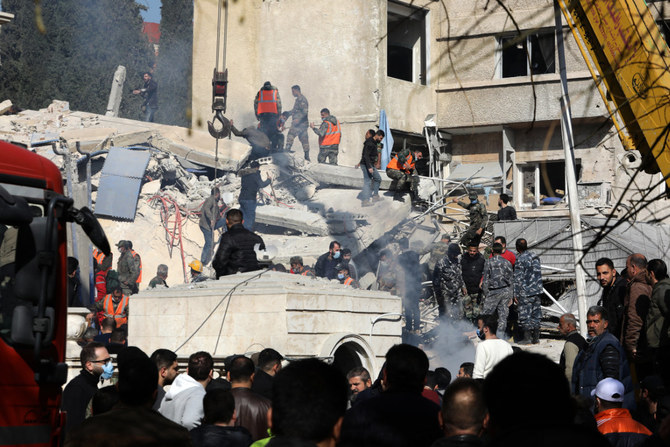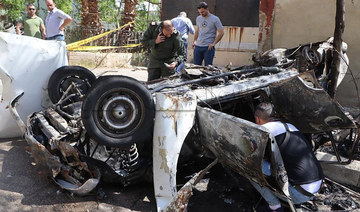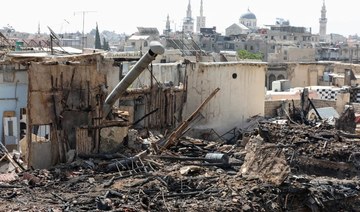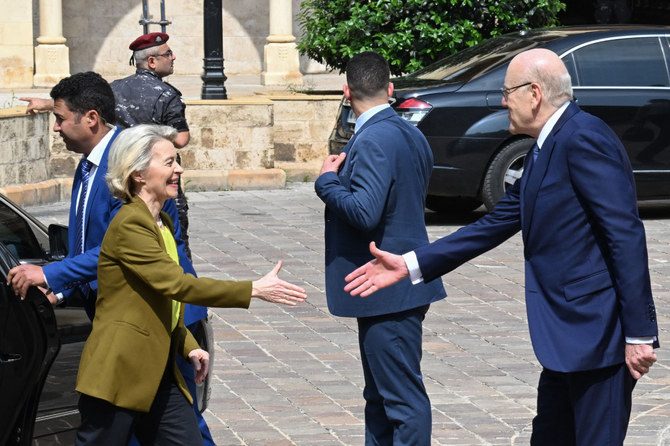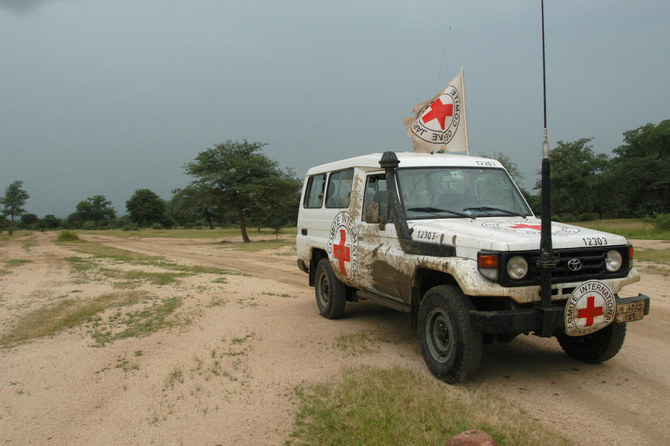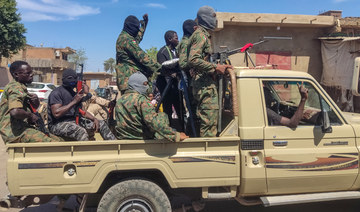NEW YORK: The UN called on Tuesday for an independent investigation into the deaths of dozens of African migrants in a recent fire at a Houthi-run detention center.
“It is not only Yemenis who are suffering in Yemen,” said Martin Griffiths, the organization’s envoy for the country. “The world was reminded of the plight of the migrant community last week when a horrific fire broke out at a detention facility in Sanaa holding predominantly Ethiopian migrants.
“Dozens were killed in the fire and over 170 seriously injured. There must be an independent investigation into the cause of the fire.”
He added that the situation in the country is deteriorating as the conflict continues, especially in light of the Houthi militia’s offensive on Marib and a recent escalation of cross-border attacks by the group targeting Saudi Arabia.
“Ansar Allah’s offensive on Marib governorate continues, putting civilians, including an estimated one million internally displaced persons, at risk,” Griffiths said, using the official name of the Houthi movement.
“Fighting forces on both sides have suffered heavy losses. I see shocking reports of children increasingly getting drawn into the war effort and deprived of their future.
“Cross-border attacks have also increased significantly in recent weeks. I am concerned by the intensification of missile and drone strikes, including ones that have targeted civilian and commercial infrastructure in the Kingdom of Saudi Arabia. Subsequently, airstrikes took place within the confines of Sanaa city, endangering civilians there as well.
“In Hodeidah, there has been a troubling continuation of violence causing civilian deaths and injuries, including women and children. I join General Guha, head of the UN Mission to Support the Hudaydah Agreement, in condemning attacks that endanger civilians.”
Mark Lowcock, the UN’s humanitarian chief, called for those guilty of violating humanitarian law in the country to be held accountable.
“About 15,000 people have fled the fighting so far. More than half are crowded into makeshift camps or other dangerous sites,” he said. “If fighting escalates, tens of thousands more will flee, likely into severely deprived camps that are already over-capacity.
“Yemen needs greater accountability for all serious violations of international humanitarian law and international human rights law in Yemen, including any violations against refugees and migrants.”
He added that the Houthi threat to Marib, a place he called a “rare safe haven” in Yemen, is putting the lives of 1 million displaced people in danger.
Lowcock, who announced last month that he intends to step down from his UN role, also accused the Houthis of inflexibility regarding the Safer tanker, which contains 48 million gallons of oil and has been moored in the Red Sea off the coast of Yemen for several years without any maintenance. As a result, its condition has deteriorated to the extent that it threatens to cause an environmental disaster.
“On the Safer tanker, the United Nations is still discussing with Ansar Allah several logistical issues that are delaying the mission,” Lowcock said. “The UN is being as flexible as possible because we want the project to start. So far Ansar Allah has not been as flexible in return.
“There are several pending issues where the UN has no room for maneuver, either because the budget can’t accommodate it or because there would be safety concerns for mission personnel.
“When Ansar Allah agreed to the mission plan in November 2020, they also committed to facilitate mission preparations and logistics. The UN remains eager to help.”
In a rare show of unity, the members of the UN Security Council joined the two envoys in condemning the ongoing Houthi offensive on Marib and the worsening humanitarian situation that is unfolding as a result.
They also condemned “in the strongest possible terms” the Houthis’ cross-border attacks on Saudi Arabia which, they said, threatens the stability of the entire region. The ambassadors were also united in demanding the Houthis allow unrestrained humanitarian access to a country where “famine is knocking on the doors” of millions, and to stop their “inhumane treatment of migrants.”
US ambassador Linda Thomas-Greenfield said: “There can be no ceasefire and no peace in Yemen if the Houthis continue their daily attacks against the Yemeni people, Saudi Arabia and other countries in the region.
“Unfortunately, Houthi attacks have continued unabated since December, when they attempted to assassinate the new Yemeni cabinet. And today, the Houthi offensive in Marib is taking the lives of more Yemeni men, women and children.”
She said that the Houthis “are cruelly detaining innocent people” and, referring to the deadly blaze at the migrant detention center in Sanaa on March 7, added: “We grieve the lives lost in the (fire). Dozens of migrants subjected to inhumane conditions by the Houthis were needlessly killed.”
Thomas-Greenfield also called on the Houthis to accept an “immediate, comprehensive, nationwide ceasefire,” and vowed, in the meantime, to continue to hold Houthi leaders to account.
The US envoy commended the Security Council decision to designate Houthi police chief Sultan Zabin under the UN sanctions regime for “overseeing and carrying out detentions, torture and sexual violence against politically active women who opposed the Houthis.”
She also vowed to continue working with the Yemen sanctions committee to identify other individuals and entities suspected of committing similar crimes.
Regarding the Safer, Thomas-Greenfield said the Houthis are threatening “irreversible catastrophe (by) delaying the UN’s assessment and initial repair of the (tanker). It is well past time for the Houthis to quit stalling” and allow the UN technical team to access the vessel and begin its inspection and repairs.
Vassily Nebenzya, Russia’s permanent representative to the UN, said he hopes the establishment of a coalition government on Dec. 18, 2020, will prove to be “an important step toward implementing the Riyadh Agreement,” and will lead to a level of security that allows all parties to focus on resolving the “acute socioeconomic and humanitarian problems in Yemen.”
He added: “We also advocate the practical implementation of the provisions of the Riyadh agreement concerning the launch of negotiations between the two joint delegations of the official Yemeni authorities and the Southern Transitional council, and the leadership of Ansar Allah Houthi movement regarding future political arrangements for the country.”




